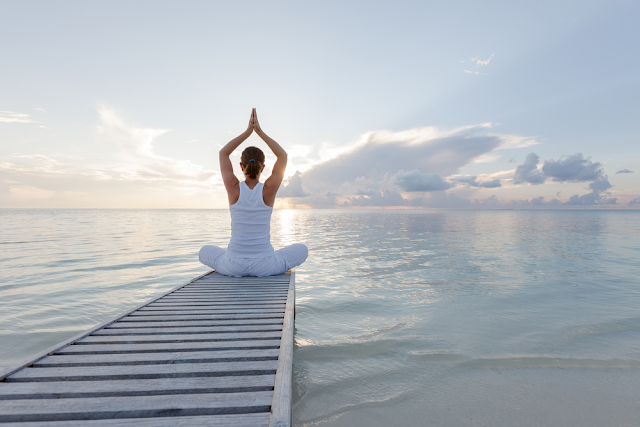- Depression affects more than 300 million people globally.
- A new study finds that being active may help cut down on depressive episodes.
- Simply going for a walk, doing yoga, or other simple physical activities may help your mental health.
Depression can take both a physical and mental toll on the body. But now experts say that staying active may help offset some of these symptoms, providing relief to the millions of people dealing with depression.
Today, depression is still the leading cause of disability worldwideTrusted Source with more than 300 million people living with the disease, globally.
Yet, there’s very little research linking lifestyle changes, such as more exercise, to a decrease in cases.
Now a new study suggests that an increase in physical activity can help significantly lower the risk of depression among individuals at low and medium risk or at a higher predisposition to the condition.
How being active can help your mental health
In a study published today in Depression and Anxiety, researchers from Massachusetts General Hospital (MGH) found that incorporating more physical activity — whether high-intensity dance, aerobic, or machines to more low-intensity yoga or walks — for 4 hours per week (or approximately 35 minutes per day) can help decrease the chances of depressive episodes by 17 percent.
To reveal the impact of physical activity on depression, researchers pulled the genomic and electronic health records of 8,000 patients within the Partners Healthcare Biobank, a New England healthcare program that collects patient data from partner hospitals for research.
Participants provided blood samples and completed a brief survey, which included questions about their physical activity level.
Throughout the next 2 years, researchers also referenced millions of other health records to calculate genetic risk of depression and the impact of physical activity on the disease.
Those with a higher risk of depressive episodes were more likely to be diagnosed within the 2 years, yet, the individuals who were more physically active were less likely to show signs of depression.
“Depression is a major public health problem and a major source of suffering for people, and the study found that it’s a fact that something like physical activity may have protective effects,” said Dr. Jordan Smoller, senior author and associate chief for research at MGH’s Department of Psychiatry and professor of psychiatry at Harvard Medical School.
“Even if you have a history of prior episodes of depression, that doesn’t take away this protective effect,” he said. “Overall, it’s a hopeful message.”
The MGH study is the first to link exercise to an actual decrease in episodes of depression, even in individuals with a genetic predisposition to the condition.
Even if someone has a family history of depression, researchers believe this study can give mental health and primary care providers a manageable recommendation that’s not medication to help lower the risk of the disease.
“You don’t have to be jogging every day for 2 hours to get the benefit,” said Smoller. “Even if you go out for a walk for a half hour a day, you could see some benefits. It can be demoralizing to set a goal and make people feel like they need to be doing something and they aren’t measuring up. That’s not really the goal here.”
Some of the common symptoms of depression include poor appetite, poor sleep patterns, having negative ruminating thoughts, and poor energy levels.
Exercise can help improve general physical well-being, sleep, appetite, and energy levels, thus helping recover from depression, according to Dr. Sarmila Sinha, MBBS, MRCPsych, MSc, FCMA and author of “An Expert Guide to Stress Management” and “Depression: A Guide to Recovery.”
How to add more activity to your life
Physical health is connected with mental health. And good physical health improves mental well-being, according to Sinha, who recommends finding a hobby or an activity that you enjoy and want to be involved in regularly.
“Join a dance club or simply register with your local walking group,” she said. “These group activities also help improve social interactions. Social isolation makes depression worse.”
Any form of low to high intensity activity works, such as swimming, walking, running, aerobic exercise, dancing, cycling, gardening, yoga, Pilates — even household chores that involve physical movement, such as climbing up and down stairs, Sinha recommends.
If you drive everywhere, try walking instead to pick up your local newspaper or your carton of milk from your local shop. All are small, easy steps that go a long way in maintaining a healthy mind and body.
“Exercise stimulates the brain to release neurochemicals like endorphins, also dubbed as the ‘happy hormone,’ or the body’s natural painkiller and helps with stress relief and pain,” she said.
It also helps prompt the release of serotonin, norepinephrine, and dopamine, which are also linked to feelings of well-being and happiness.
“Exercise has other health benefits, such as weight reduction, regulating blood sugar, and it reduces the risk of heart disease,” she added.
And it’s never too late to start getting more physical — whether in your 20s, 30s, 40s, or older. As long as you enjoy what you’re doing, it may become part of your lifestyle and, ultimately, help you stay happier, longer.
“Overall, take is easy, take it slow, and don’t be too hard on yourself,” said Sinha. “It’s important that you enjoy the physical activity.”



No comments:
Post a Comment